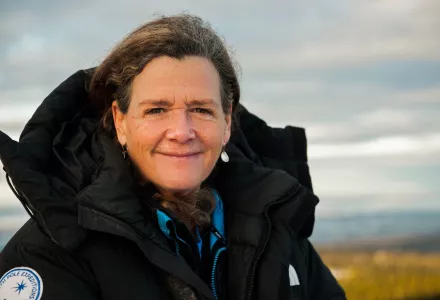“Solutions Journalism: Expanding the Climate Change Narrative, from the Arctic to Australia”
Elizabeth Arnold, Chair and Professor of Journalism, University of Alaska, and former NPR national correspondent, will address new ways to improve climate change coverage. The national media continue to sound the alarm about climate change, but the gloom and doom narrative may fail to engage the public in a meaningful way. A former fellow at the Shorenstein Center, Arnold documented a pattern of reporting that conveys a catastrophic vision with little in the way of how individuals, communities and governments are responding. After a decade of reporting from some of the most remote areas of the Arctic, Arnold advocates a solutions-focused approach to more effectively communicating climate change around the world.
The seminar will be moderated by Cristine Russell, ENRP Senior Fellow & HKS Adjunct Lecturer. It is sponsored by the Belfer Center's Environment & Natural Resources Program (ENRP), Arctic Initiative & SEE PIC: the HKS student interest group for Sustainability, Energy & Environment.
Please submit RSVPs via the link below.
Refreshments will be served.



